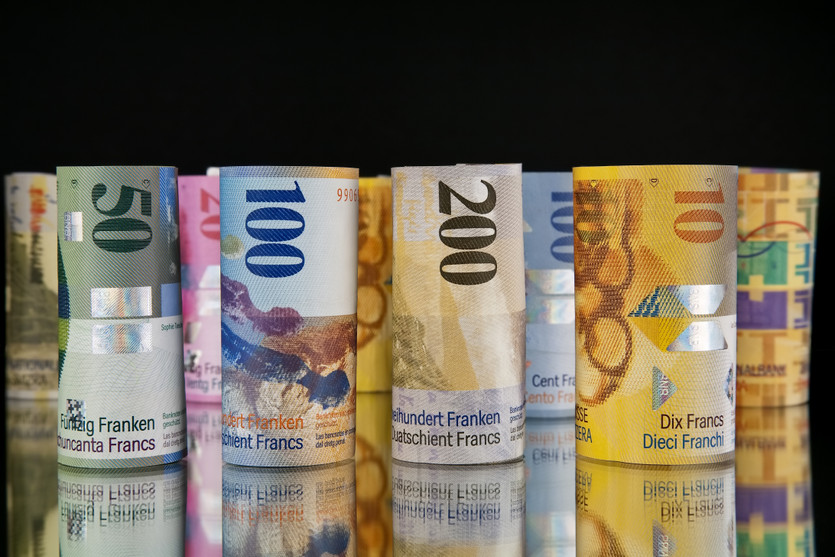Balancing Risk, Returns, and Inflation Protection
Globally, investors are constantly in the quest for options that offer superior returns while ensuring the security of their capital. Assets such as bonds, despite their security, usually yield lower returns, while other financial assets like stocks offer potentially higher returns but at a higher risk. Furthermore, the menace of inflation often devalues these returns. Investors hence seek assets that offer a golden trifecta—immunity against inflation, assured safety, and robust returns. While gold and the U.S. dollar have been traditional choices, the Swiss franc has emerged as a viable investment candidate that ticks all these boxes.
The Swiss Franc: A Beacon of Stability
For a long time, the Swiss franc has been recognized as a safe harbor in the turbulent sea of finance. During economic turbulence, investors have consistently found solace in Switzerland's national currency, assured of its value retention. The financial crisis that unfurled in 2007–2008 stands as a testament to this phenomenon, with a surge in Swiss franc purchases by investors seeking stability.
The Swiss franc's steadfast performance during the European debt crisis further reinforced its popularity. In this article, we dig deeper into investment avenues, such as ETFs and forex options, that empower investors to leverage the strengths of the Swiss franc without necessarily buying the currency outright.
Factors Bolstering the Swiss Franc's Safe Investment Status
The reputation of the Swiss franc as a robust and reliable investment vehicle is underpinned by several key events:
- The advent of sanctions by the United States and the European Union against Russia drove the oil and gas-rich nation to seek alternatives to U.S. dollars and securities for storing its wealth. Concurrently, the depreciating Russian ruble prompted Russian investors and businesses to seek safer currencies, and many found refuge in the Swiss franc.
- The multi-nation European debt crisis from 2009 to 2013 sparked massive fund transfers from the distressed European nations to Switzerland, further fortifying the franc's strength.
- The global financial crisis of 2008 that originated in the United States also led to a shift of funds from U.S. currency and securities to Swiss assets.
- Amid the throes of the European debt crisis in 2011, the EU and international investors, in their bid to find safety, bought Swiss francs en masse, thereby strengthening the currency. To prevent the franc from gaining excessive strength, Switzerland strategically pegged their currency at 1.20 against the euro.
Why Choose the Swiss Franc as a Safe Investment?
Several factors contribute to the allure of the Swiss franc as a strong investment option:
- Switzerland's geopolitical and economic milieu: Switzerland's robust and stable economy comfortably accommodates a realistic growth rate with controlled demands. Factors such as its manageable size, sustainable use of resources, and restrained investments in production and agriculture have contributed to its consistent economic growth.
- Fiscal discipline: Switzerland operates on a budget surplus, meaning its revenue surpasses its expenses. This fiscal prudence ensures self-reliance and currency stability.
- Inflation hedge: Given the relative stability against inflation, the Swiss franc is often seen as an alternative to gold, which is traditionally held as a global reserve for its perceived hedge against inflation.
- Independent monetary policy: The Swiss National Bank (SNB) holds the power to issue any amount of currency, without the need for reserves. This ability was particularly useful during the European debt crisis when the SNB pegged the Swiss franc to the euro to curb high demand, thus ensuring the Swiss economy's stability.
- Small debt market: The compact size of the Swiss debt market prevents foreign entities from dominating Swiss debt, thus maintaining its economic independence. Given Switzerland's budget surplus, there is no dependency on foreign funds, making it immune to foreign debt buy-ins. This factor plays a crucial role in shielding the Swiss economy and maintaining the Swiss franc's valuation.
- Other factors: The Swiss franc's position as a safe investment is further bolstered by the country's strong GDP, negligible budget deficit, low unemployment rates, significant contributions from the financial services sector, and high per capita income. Moreover, Switzerland's role as a preferred destination for secure banking adds to the Swiss franc's stability.

Pathways to Invest in the Swiss Franc
Exchange Traded Funds (ETFs)
CurrencyShares Swiss Franc Trust (NYSE: FXF), launched in 2006, offers a seamless way to track the performance of the Swiss franc against the U.S. dollar. The use of ETFs presents a viable opportunity for those wishing to tap into short-term tactical and long-term strategic opportunities without owning a foreign exchange account. One can conveniently purchase shares of this ETF through traditional brokerage accounts, treated as regular securities but with transaction costs significantly lower than spot market transaction costs. The shares are daily traded on the NYSE Arca, allowing for margin accounts and permitted short sales as per the U.S. Securities and Exchange Commission (SEC).
Spot Market
The foreign exchange market (FX or forex) is the go-to platform for trading in different currencies, much like a stock market for stocks. Before diving into forex, it's advisable to gain basic knowledge of the market through a trading course or self-learning. Once you're familiar with the workings of the market, you can open a forex trading account and perform currency trades akin to stock trading.
Futures and Options
Futures and options are not exclusive to stocks. The forex market offers these derivative products that help manage the risks associated with currency rate fluctuations while profiting from shifts in currency rates. These hedging techniques are popular among banks and financial institutions. They're traded at numerous exchanges worldwide, with the Chicago Mercantile Exchange (CME) being the most popular. Several brokers provide a platform to trade in Swiss franc futures and options.
Binary Options
Binary options, owing to their simplicity, flexibility, and ease, are a popular choice among forex market participants. USD/CHF is one such pair in binary options trading. However, it's important to stay informed about triggers that could influence the movement of these currencies, such as announcements regarding economic factors, monetary action by the U.S. Federal Reserve, or actions by the Swiss National Bank. A comprehensive understanding of technical analysis, backed by fundamental analysis, will be crucial in forecasting the movement of the currency pair.
In conclusion, the Swiss franc has proven to be a reliable investment, particularly during times of economic turbulence. Its combination of stability, excellent performance as an inflation hedge, independent monetary policy, small debt market, and various appealing national factors, create an attractive investment proposition. There are also multiple investment methods, each with its own advantages, that make investing in the Swiss franc accessible to different types of investors. The Swiss franc's rise as a reliable investment shows that amid economic turbulence, it stands as a beacon of stability and strength.





